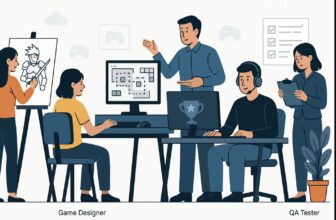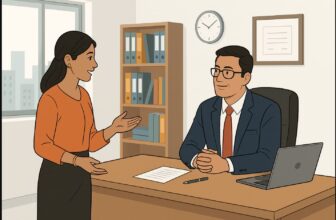Social media has become a central part of daily life for millions of students worldwide. Platforms like Instagram, Facebook, Twitter, and TikTok provide countless opportunities for entertainment, communication, and even learning. However, excessive use or misuse of social media can have serious negative effects, particularly on students’ careers and academic performance. In this post, we’ll explore dangerous effects of social media on students’ careers, shedding light on the hidden risks and how they can be avoided.
The Dark Side of Social Media – 17 Reasons Students Should Be Careful:
1. Decreased Productivity
Social media can be highly distracting. When students spend excessive time scrolling through their feeds, they often lose focus on their studies and assignments. Constant checking of social media notifications can break concentration, resulting in lower quality of work and delayed deadlines.
2. Sleep Deprivation
Engaging with social media late at night can interfere with sleep patterns. Studies show that students who stay up late using social media tend to get less sleep, which can lead to fatigue, poor concentration, and a negative impact on academic performance. Lack of sleep also impairs memory and learning ability.
3. Poor Time Management
The addictive nature of social media often leads students to waste hours scrolling through posts, watching videos, or playing games. This results in poor time management skills, affecting their ability to balance academics, extracurricular activities, and part-time jobs—ultimately hampering career development.
4. Reduced Academic Performance
As social media usage increases, the time spent studying and completing assignments decreases. This decline in academic performance can reflect poorly on students’ grades and future opportunities, such as internships and scholarships, which are essential for career advancement.
5. Negative Impact on Mental Health
Constant comparison on social media can lead to feelings of inadequacy, anxiety, and depression. Students may feel pressure to meet unrealistic standards, which can hinder their self-esteem and confidence—essential qualities for succeeding in any career. Mental health challenges can also lead to burnout and fatigue, further impacting academic and career goals.
6. Cyberbullying and Harassment
Social media platforms expose students to the risks of cyberbullying and online harassment. This can cause emotional distress, leading to a lack of motivation, withdrawal from academic or professional pursuits, and long-lasting psychological effects that hinder career prospects.
7. Damaging Online Reputation
In the age of digital footprints, everything posted online can remain accessible indefinitely. Students may post content they later regret, such as controversial opinions or inappropriate images. These posts can damage their reputation and hurt their chances of securing jobs or internships in the future.
8. Addiction to Social Validation
Social media promotes the pursuit of likes, comments, and followers, leading students to base their self-worth on virtual validation. This obsession with online popularity can distract students from more meaningful, long-term goals and hinder their focus on career development and skill-building.
9. Decreased Face-to-Face Interaction
Over-reliance on digital communication can reduce students’ ability to communicate effectively in person. Effective communication is an essential skill in any career, and students who spend more time online may struggle with face-to-face interactions, networking, and building professional relationships.
10. Negative Influence on Career Choices
Social media often showcases highlight reels of other people’s lives, leading students to make career choices based on superficial influences. Following trends on social media might distract students from their true passions or career interests, ultimately leading to dissatisfaction or lack of fulfillment in their professional lives.
11. Procrastination
Social media is often used as a tool for procrastination. Students may find themselves spending hours scrolling through their feed, putting off assignments, projects, and studying. This not only affects academic performance but can also delay important career-related activities like preparing for interviews or networking events.
12. Fake News and Misinformation
Social media platforms are notorious for the spread of fake news and misinformation. Students may unknowingly consume and share inaccurate information, which can harm their academic credibility and decision-making abilities. Being influenced by false information can lead to poor choices regarding career paths or job opportunities.
13. Lack of Focus on Skill Development
Many students use social media to entertain themselves or keep up with the latest trends rather than focus on developing important career skills. Platforms that don’t contribute to learning or professional growth can take up valuable time that could be spent on improving technical skills or gaining work experience.
14. Impulse Buying and Financial Issues
Social media’s constant advertisements and influencer marketing can lead to impulse buying, which may negatively affect students’ finances. Financial instability or poor budgeting can create stress, which can interfere with their ability to focus on academic and career goals.
15. Privacy Risks
Students often share personal information on social media without fully understanding the potential risks. This can lead to privacy breaches, identity theft, or exploitation, which can damage both their personal and professional lives. Safeguarding personal information is essential for maintaining a positive online reputation and career opportunities.
16. Distractions During Job Hunting
During job hunting, students might find themselves distracted by social media platforms, diverting their attention away from job applications, resume building, or preparing for interviews. Instead of focusing on professional opportunities, students may waste valuable time browsing social media for entertainment or socializing.
17. Peer Pressure and FOMO (Fear of Missing Out)
Students may feel pressure to follow trends or make career decisions based on what they see others doing on social media. This “FOMO” can cause them to rush into decisions without properly considering their personal interests, skills, or long-term career goals, leading to dissatisfaction and career misalignment.
Endnote: Be Mindful of Social Media Usage
While social media has undeniable benefits, including connectivity and knowledge-sharing, its negative effects on students’ careers cannot be ignored. Students must be mindful of the time spent on social platforms and use them to enhance their learning, personal growth, and professional networks. Balancing social media use with academics, career preparation, and mental health is crucial for ensuring long-term success and well-being.
By cultivating healthy digital habits and maintaining focus on personal and professional development, students can avoid the dangerous effects of social media and make more informed choices for their futures.




